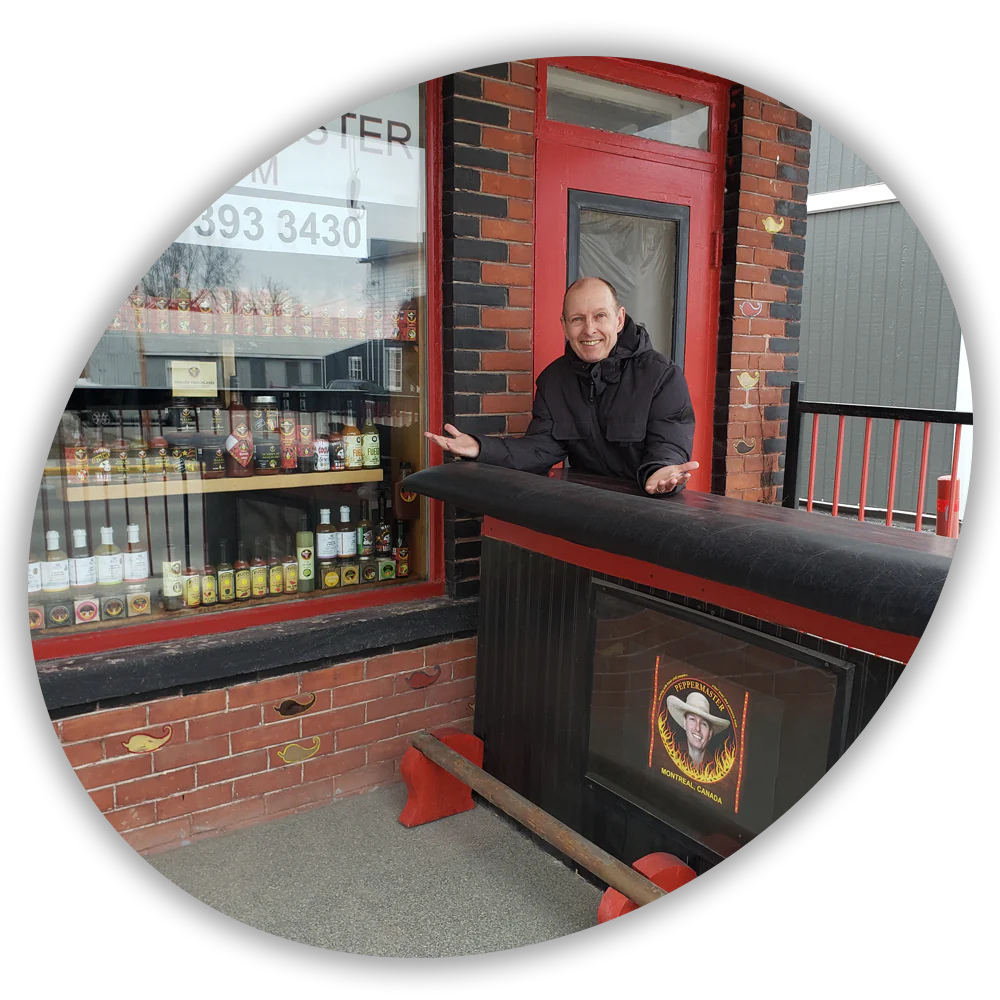
How Our Fair Trade Mandate Became Local Food Security
Brooks Pepperfire Brooks Foods inc. began its local food security journey in the wild jungles of Nassau, Bahamas in the 1960s, where Quebecer Greg Brooks was raised from the age of 6. Growing up to become a renowned chef, now known as The Peppermaster, he brings his wild upbringing to life in the flavours he creates. His wife Tina comes to local food security from a quite different journey. Tina grew up with inexplicable food sensitivities and when she met our hero, she disliked food immensely. Together, they have gone on an exploration of sensory, taste and flavour experiences that have made Tina an enormous lover and advocate of real good, real food. Although, the majority of their adventure together has been the building of the company, their adventure has not just been one of hiring farmers and making food products for other companies. Indeed they have spent their time changing the world in which they live with their motto – one pepper at a time.
Our History
In 2004 when Brooks Pepperfire Foods inc. incorporated, the supply of Quebec-grown chili peppers was virtually non-existent. In fact, 98% of all of the supply of anything from Jalapeno through Habanero (the hottest known pepper, at the time), was imported. Hungarian hot wax, banana peppers, and espelettes were all anyone actually growing food knew about.
Except for this one man in Jean Talon Market. During harvest, he had cherry bombs, long red chillies, and red Habaneros. So, we had no choice but to import our peppers.
Aside from building Brooks Pepperfire Foods, two projects have been the mainstay of their activities. One was figuring out how to feed Tina so that Greg could eat more than whole wheat bread, frozen vegetables and skinless chicken breast, commonly known as the "hospital diet," and the other was cultivating farmers to grow peppers for the company, so they could be ripened on the bush.
They started by seeking out fairly traded peppers. Armed with a mandate from TransFair Canada, they managed to create a market for Fair Trade chili peppers, which can now be found marketed under several different brands in Canada. They worked directly with chili farmers to ensure the fruit are ripened on the bush and shipped immediately upon harvest. This also ensured the freshest, ripest all-natural peppers they could find were being used in the Peppermaster brand of products.
As the years passed, and they worked with more and more farmers, they discovered that it wasn't the food that Tina disliked, rather it was what was being sprayed upon the food. Cultivating more and more farmers to grow for them, they realized that they had a responsibility to the earth to help ensure the farmers didn't spray any more chemicals than absolutely necessary on the peppers. They also learned that many chemicals in the conventional food arena were really very toxic, not only to Tina, but to the Earth, the water, and the entire planet.
More recently, Greg and Tina have been working on a project with local organic farmers and food producers to build an International Standards food hub that will provide not only an outlet for local producers to legally make and sell their own products, but will create a food uptake hub. This allows local farmers at the end of market day to no longer plow their excess crop under, but have the ability to pre-transform it so it can be used in industry or transformed into a plus-value product.
They believe that the simple implementation of a locally based, food connection hub, will, at the very least, allow these farmers to serve the Food Bank sector, restaurants, and local shops, but may allow Canada to create the local food security that is sorely lacking while 80% of our food is imported from elsewhere.

The Impact of COVID-19
In 2020, when the pandemic hit, two things happened in the Canadian Food Industry. Canadian consumers both became glaringly aware of the importance of local food security. As international food chains faltered, consumers hoarded certain foods and industry went hunting for local products. At the same time, Tina completed writing a white paper that the company hoped would convince their existing and future commercial customers to also switch their ingredients to local, organic, and fair trade as quickly as possible.
Company research showed that 38% of the food demand in Canada is for organic food. Yet, only 2.2% of Canadian agriculture is organic. Thus any organic food is selling at a premium that leaves our country, creating an even larger dearth in food security.
The conclusion of that white paper turned into a petition (currently open for signature) to the Federal Government, asking that they commit to converting all Canadian agricultural purchases to meet Organic standards in order to fulfill both the food standards Tina would like to be able to enjoy, but also to meet Canada's commitment to the Paris Accord.
Brooks Pepperfire Foods and the Peppermaster brand are committed to ensuring that the Slow Fair Trade movement not only grows but becomes the rule rather than the exception when it comes to food available to Canadian consumers, which guarentees local food security in the end.
